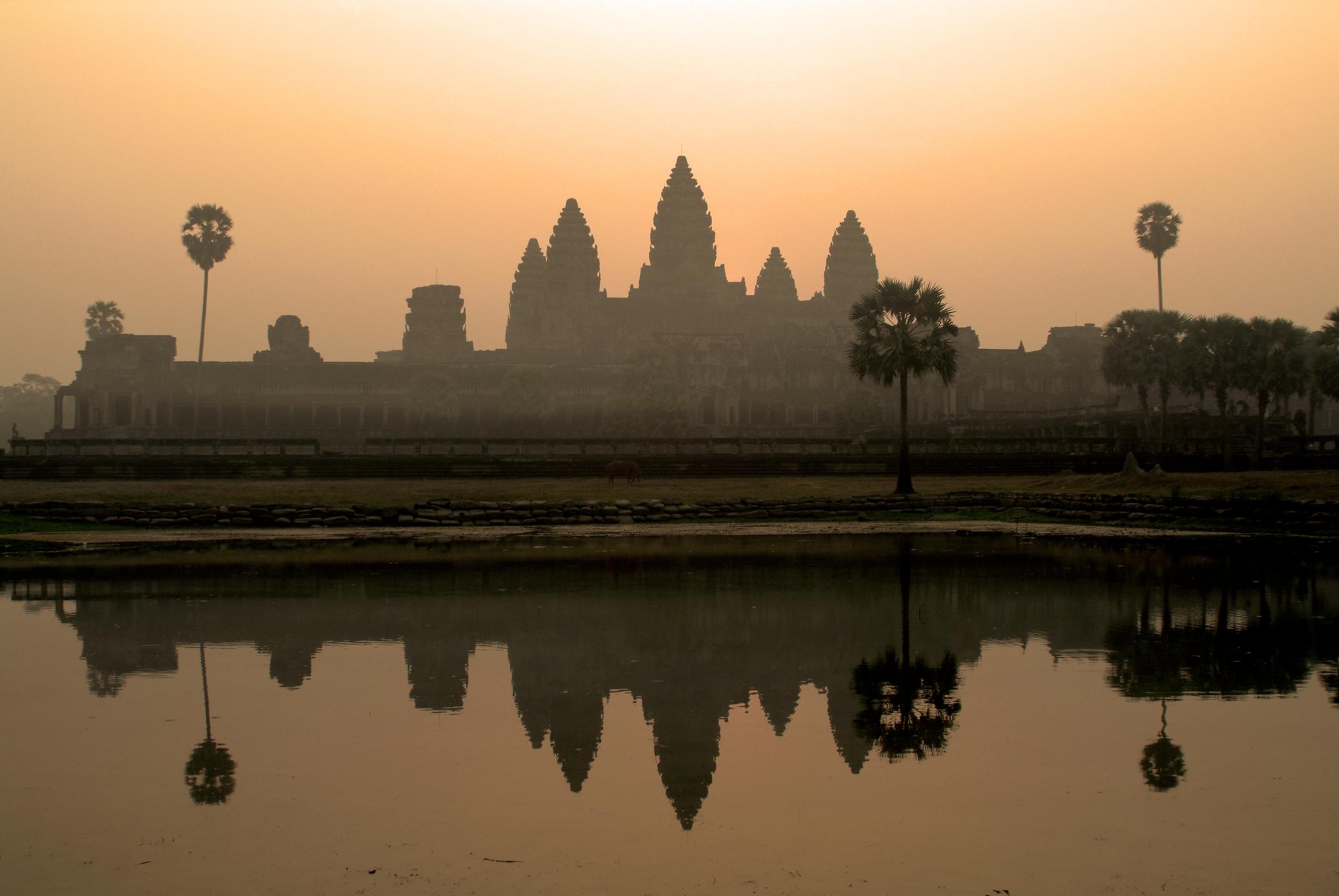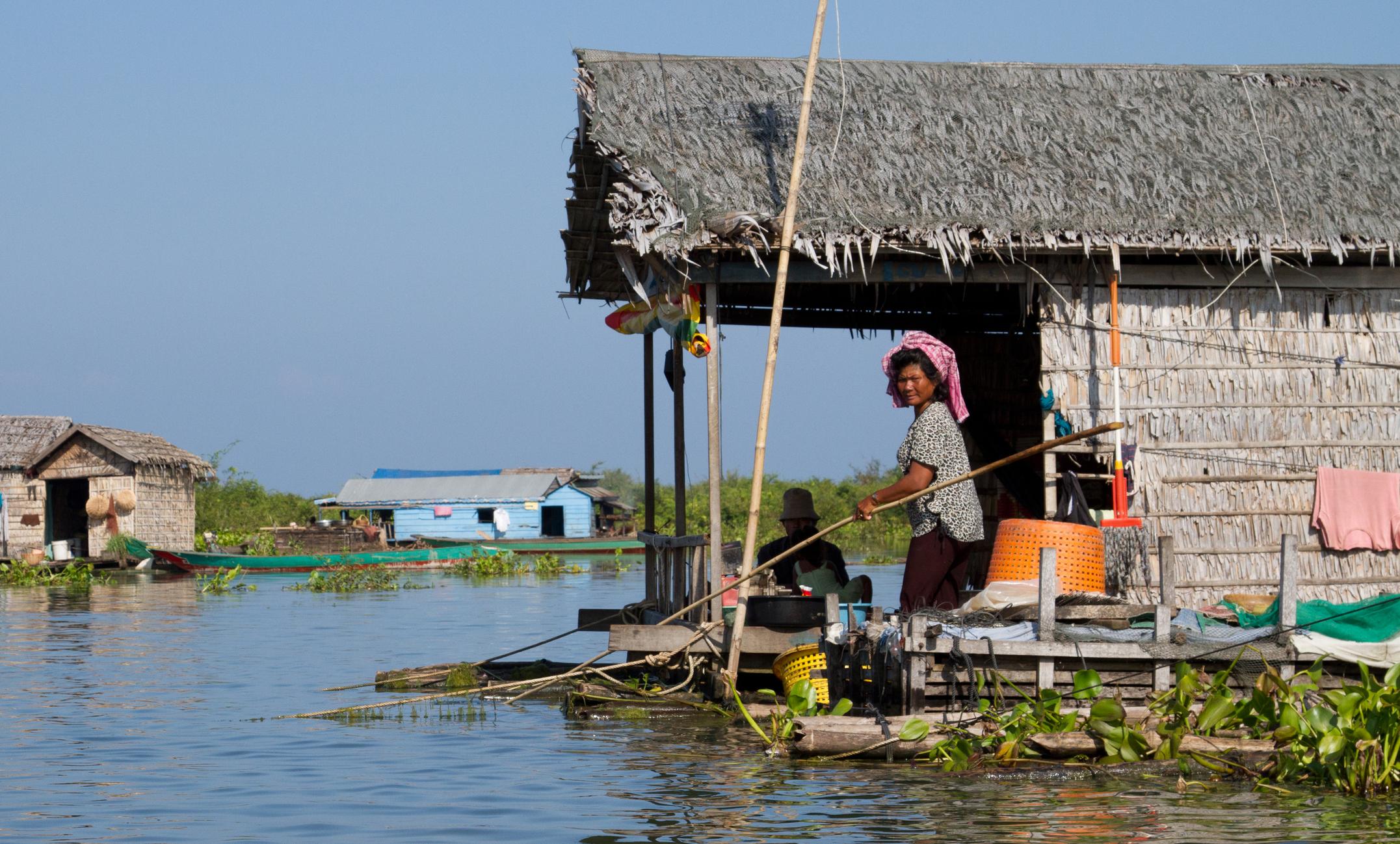
Supporting communities, protecting nature
Since 2001, Conservation International-Cambodia’s groundbreaking science, community-led partnerships and fieldwork have helped protect Cambodia’s rich natural capital.
We focus primarily on forests and fisheries, working with local communities and government to reduce deforestation and protect wildlife, improve the management of wetlands, promote sustainable agricultural and develop innovative funding sources to drive conservation.
In Cambodia’s Central Cardamom Mountains, one of Southeast Asia’s most intact and ecologically rich landscapes, we work with the Indigenous Chourng and Por communities to protect wildlife habitats and support sustainable livelihoods. We’re working to improve the management of fisheries along the mighty Mekong River, and we’re helping communities in the Prey Lang forest make rice production sustainable. And in the Veun Sai-Siem Pang National Park, we created an ecotourism program to benefit local communities and finance the protection of an endangered species of gibbon.
2001
YEAR FOUNDED
9.2M
PEOPLE
dependent on nature in Cambodia1
203M
METRIC TONS
of irrecoverable carbon in Cambodia2
14
VERTEBRATE SPECIES
that are endemic to Cambodia3
At Conservation International-Cambodia, we believe that when nature thrives, people thrive. Our mission is rooted in the understanding that protecting Cambodia’s unique biodiversity is not only about saving species like the pangolin, giant barb fish, or northern yellow-cheeked crested gibbon—it’s about securing the future of communities who depend on them.”
Areas we work

Improving livelihoods and protecting nature in Tonle Sap
The Tonle Sap Lake in central Cambodia is the largest freshwater lake in Southeast Asia, and home to many species of endangered plants and animals.
The lake also supports numerous villages that float on the water’s surface. In fact, more than a million Cambodians depend on the lake and its surrounding forests for food, fresh water and livelihoods. Fish provide Cambodians with most of their animal protein. And, for those living on Tonle Sap, it’s their main source of revenue — from selling products like smoked fish and fish paste.
But deforestation and overfishing have taken their toll on the lake, depleting fish stocks and driving many villagers into debt due to lost income.
That’s where Conservation International-Cambodia comes in: We’ve developed a program to support fisheries and the families who depend on them. We help villagers find sustainable ways to catch and raise fish, and, using the latest science, identify the most productive locations for their fish farms. Additionally, we’ve helped Tonle Sap communities set up a communal savings fund, offering a safety net against lost revenue while fostering financial responsibility and greater economic freedom.
References
- Fedele, G., Donatti, C. I., Bornacelly, I., & Hole, D. G. (2021). Nature-dependent people: Mapping human direct use of nature for basic needs across the tropics. ScienceDirect, 71. https://doi.org/10.1016/j.gloenvcha.2021.102368
- Conservation International (2021, November). Irrecoverable Carbon. Retrieved January 2025, from https://www.conservation.org/irrecoverable-carbon
- The IUCN Red List of Threatened Species. (2024). Table 8a: Total, threatened, and EX & EW endemic species in each country [Fact sheet]. https://www.iucnredlist.org/resources/summary-statistics#Summary%20Tables